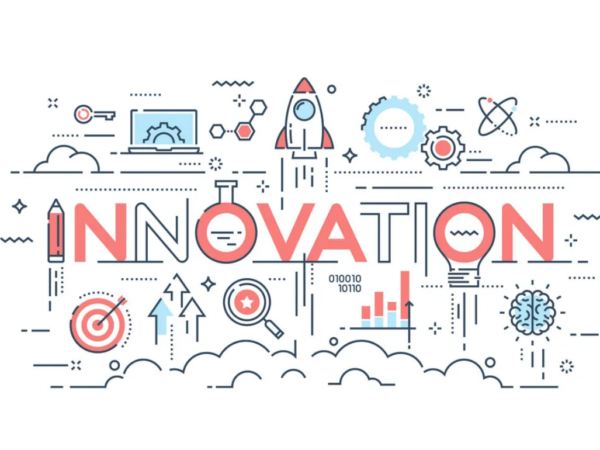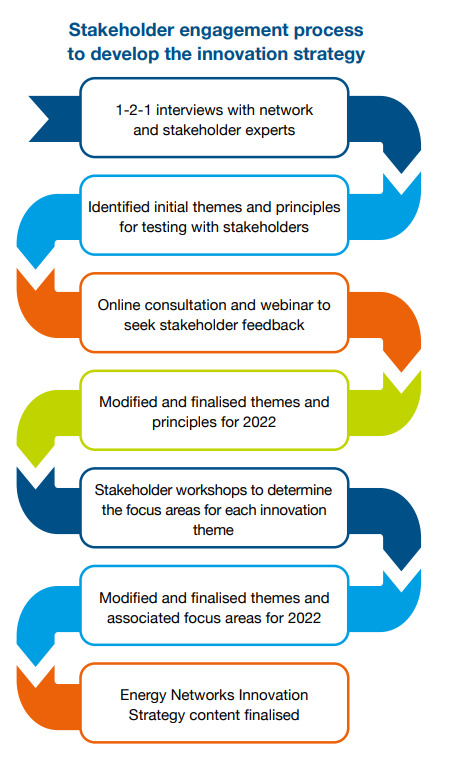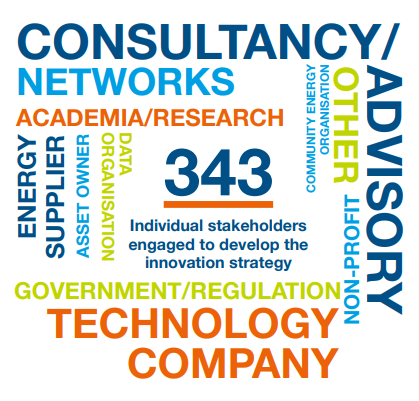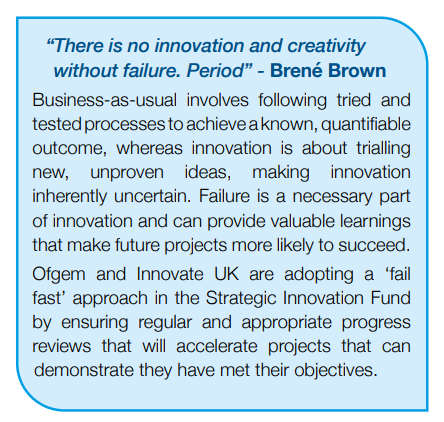Grace Millman, energy analyst, highlights some key messages and outcomes from Regen’s work with Energy Networks Association (ENA) and GB’s electricity and gas network companies to develop a shared strategy for network innovation.
Grace Millman, energy analyst, highlights some key messages and outcomes from Regen’s work with Energy Networks Association (ENA) and GB’s electricity and gas network companies to develop a shared strategy for network innovation.


Regen has collaborated with ENA and the energy network companies over the past 6 months to develop a shared strategy for network innovation. This has provided Regen with an opportunity to help shape cutting edge innovation work and guide future investment for the most critical aspects of a just transition to a net zero energy system.
 As part of this project, we carried out an extensive process of stakeholder engagement, hearing from over 300 individual stakeholders from across the energy system. At each stage in the process, we reflected on what we had learned by engaging with these stakeholders and how their feedback influenced the strategy. This was extremely important, as it ensured that the final strategy truly reflected the views of stakeholders, and focused on the key priorities for network innovation.
As part of this project, we carried out an extensive process of stakeholder engagement, hearing from over 300 individual stakeholders from across the energy system. At each stage in the process, we reflected on what we had learned by engaging with these stakeholders and how their feedback influenced the strategy. This was extremely important, as it ensured that the final strategy truly reflected the views of stakeholders, and focused on the key priorities for network innovation.
In this article, we reflect on our experience of being part of this project collaborating with ENA and the network companies to produce the network innovation strategy, and pull out some of the key takeaways from engaging with stakeholders.
The benefits of collaboration
In this iteration, for the first time, the network companies have developed one, shared strategy covering both gas and electricity networks. This ensures network innovation takes a fully whole system approach; with network companies working together and with other sectors to identify and implement new, efficient and cutting edge solutions to enabling a net zero energy system. This is already a key element of network innovation activity, with 95% of innovation projects in 2020/21 involving multiple network companies, and 88% including collaboration with third party organisations.
Collaboration continued to be a key theme for network innovation moving forward, with the importance of collaboration not only between network companies but also between different sectors being highlighted across both the virtual workshops. It was recognised that, in order to achieve net zero, we need to take a whole energy system approach, including data sharing between network companies, joined-up approaches to regional network planning and forecasting and whole system support to enable the growth and operation of low and zero carbon solutions.
The importance of failure in innovation

As Brené Brown, an American research professor, author and lecturer, said, “there is no innovation and creativity without failure. Period.” While failure is not normally something that is celebrated, it is a necessary part of innovation and provides valuable learnings to grow and improve. This has been reflected in the updated strategy through the inclusion of “innovation culture” as a new principle for 2022. Innovation culture was mentioned in 53% of the individual networks’ innovation strategies and is key to delivering net zero. This does not only relate to the dedicated innovation teams within the network companies but all teams across the businesses. This can be achieved by empowering people to think creatively and explore new ideas in a supportive environment. Embracing a culture where innovative thinking is encouraged will enable greater creativity to accelerate net zero and will support innovators to become more comfortable with the idea of failure, and the lessons learned through it.
The nuances of delivering a just transition
 An area that we are passionate about at Regen, and is a critical issue for the network companies, is achieving net zero in a just and equitable way. Not only does this mean that no one is disproportionately disadvantaged by the transition to net zero, it also means that everyone should have equal opportunities to prosper from it too. Greenpeace outlines three essential ingredients needed to make a just transition work: collaboration, a local approach, and money. The network companies recognise that, with direct contact with local and regional communities and access to billions of pounds of innovation funding, they are in a unique position to make the journey to net zero work actively against poverty and inequality. In short, network innovation should maximise the social potential of the moment and build the key principles of justice and equity into the wider energy transition.
An area that we are passionate about at Regen, and is a critical issue for the network companies, is achieving net zero in a just and equitable way. Not only does this mean that no one is disproportionately disadvantaged by the transition to net zero, it also means that everyone should have equal opportunities to prosper from it too. Greenpeace outlines three essential ingredients needed to make a just transition work: collaboration, a local approach, and money. The network companies recognise that, with direct contact with local and regional communities and access to billions of pounds of innovation funding, they are in a unique position to make the journey to net zero work actively against poverty and inequality. In short, network innovation should maximise the social potential of the moment and build the key principles of justice and equity into the wider energy transition.
One of the six network innovation themes from the strategy – supporting consumers in vulnerable situations – is defined as “exploring how best to support the needs of consumers who find themselves in vulnerable situations, today and in the future, to enable a just transition”. The change in this theme since the last strategy reflects a better understanding of vulnerability, not as a characteristic of consumers themselves, but as the result of interacting socio-economic, geographical, political and digital factors. Consumers may move in and out of vulnerable situations and stakeholders felt that the change in language in this strategy better reflected that vulnerable customers are not necessarily a static pool of people.
Conclusion: the significance of network innovation
Hearing the opinions of over 300 stakeholders has highlighted the different challenges we face to make the UK’s infrastructure ready for net zero. However, working on this strategy with ENA and the network companies has provided hope that we can tackle these challenges to achieve net zero, with a focus on collaboration, recognition of the value of failure, and the significance of inclusion and equality.
You can find out more about our work on energy network innovation here.